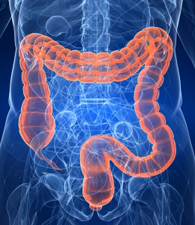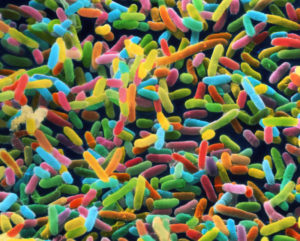Numerous microorganisms, including bacteria, colonize the intestine where they play important roles in maintaining homeostasis. However, commensal bacteria with pathogenic potential, such as Helicobacter hepaticus, can also induce intestinal inflammation. Cross-talk between gut microbiota and the host immune system can prevent or mediate chronic intestinal inflammation, the outcome of which depends on gut microbiota composition, immune response, host genetic factors, and how these factors interact (1, 2). Physiologically, the intestine has developed several strategies to resist colonization by non-native bacteria and control the expansion of pathobionts that have the potential to cause pathology. Intestinal colonization by bacteria from the oral cavity has been suggested to be extensively involved in inflammatory diseases (3, 4). However, it remains unclear what subset of oral microbiota may ectopically colonize the intestine and whether they induce inflammatory immune responses. On page 359 of this issue, Atarashi et al. (5) show that strains of Klebsiella spp. from the salivary microbiota colonize in the gut and can potently induce chronic intestinal inflammation.







